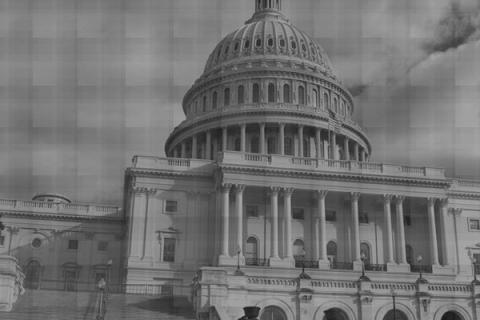Voters headed to the polls this November will be confronted with the option of legalizing the cultivation and recreational use of marijuana. Before deciding, Californians might want to take a cue from the federal government, well the business arm of it anyway, and take a serious look at the dramatic health benefits of the oft stigmatized plant.
Marijuana is classified as a schedule I substance by the feds. This classification designates that the drug has “no current use for medical treatment in the United States.” Besides a slew of scientific studies controverting this assertion, it seems the Department of Health and Human Services didn't get the "pot-has-no-medicinal-value" memo when they applied for a patent on the preventive and curative properties of cannabis in 1999.
Patent (#6,630,507), was awarded to the agency based on research carried out by the National Institute of Health. What scientists discovered in those studies was evidence that cannabinoids – the active ingredients in the marijuana plant – are antioxidants, neuroprotectants and anti-inflammatory agents, useful in the prevention and treatment of a wide variety of diseases including Alzheimer's, Parkinson's, HIV dementia, stroke, trauma and auto-immune disorders. The government is currently licensing its cannabinoid patent.
More recent studies by the DHHS's own health research agency found that “cannabidiol (CBD), a non-psychotropic compound from the plant cannabis sativa, can inhibit the processes that allow breast cancer cells to grow and spread (metastasis).” It would be important to note that the NIH research has relegated itself to the 40% of the cannabis plant which does not contain the high-inducing compound known as tetrahydrocannabinol (THC), if there wasn't already a growing body of scientific literature extolling the anti-cancer properties of the psychotropic drug.
Steve Kubby, a writer for the Sierra Times, authored an article in the Fall of 2003 questioning the mainstream media's suppression of the "Cannabis-Cancer-Cure" during the previous 30 years. “That’s right, news about the ability of pot to shrink tumors first surfaced, way back in 1974,” writes Kubby, “Researchers at the Medical College of Virginia, who had been funded by the National Institutes of Health to find evidence that marijuana damages the immune system, found instead that THC slowed the growth of three kinds of cancer in mice — lung and breast cancer, and a virus-induced leukemia.”
That particular study was highlighted in the local section of the Washington Post under the headline, “Cancer Curb Is Studied,” with little to no coverage from other major publications. A more recent study performed in Madrid found conclusively that the active components of marijuana inhibit tumor growth in laboratory animals. On February 29, 2000, the news of the Madrid findings reverberated like a pin drop, garnering coverage from one UPI wire release. The New York Times, Los Angeles Times, and The Washington Post inexplicably snubbed the story.
So why the coverup?
The answer, according to MarijuanaNews.com editor Richard Cowan, is because it is a threat to cannabis prohibition and to the integrity of a War on Drugs which threatens to claim more lives than it could ever possibly save. In response to Kubby's article, Cowan notes, “There really is massive proof that the suppression of medical cannabis represents the greatest failure of the institutions of a free society, medicine, journalism, science, and our fundamental values.”
In a 2008 editorial exposing the government's cannabis health patent, Brinna Nanda gives some startling statistics concerning the effects of marijuana prohibition. Nearly one million people a year are arrested for marijuana related “crimes” – half of all drug arrests. The U.S. has the highest incarceration rate in the world with one in every hundred currently in jail.
Could it be that circumstances such as these might owe themselves to a bureaucratic profit motive, at least on the local level?
According to Nanda, cannabis decriminalization would cut deeply into proceeds from money and property seizures (performed with little to no oversight) by law enforcement agencies during drug busts. “It is not surprising that police, district attorneys, and the prison guard union consistently lobby against grassroots initiatives which seek to modify our failed drug policies and bring them into alignment with common sense and human decency,” writes Nanda.
Decriminalizing cannabis for recreational use in the golden state could be one more stepping stone towards a national ballot initiative to help end the multitude of infringements upon natural rights characteristic of the federal government's War on Drugs.
It could also provide a low-cost and non-toxic alternative to chemotherapies and other dangerous disease therapies.

